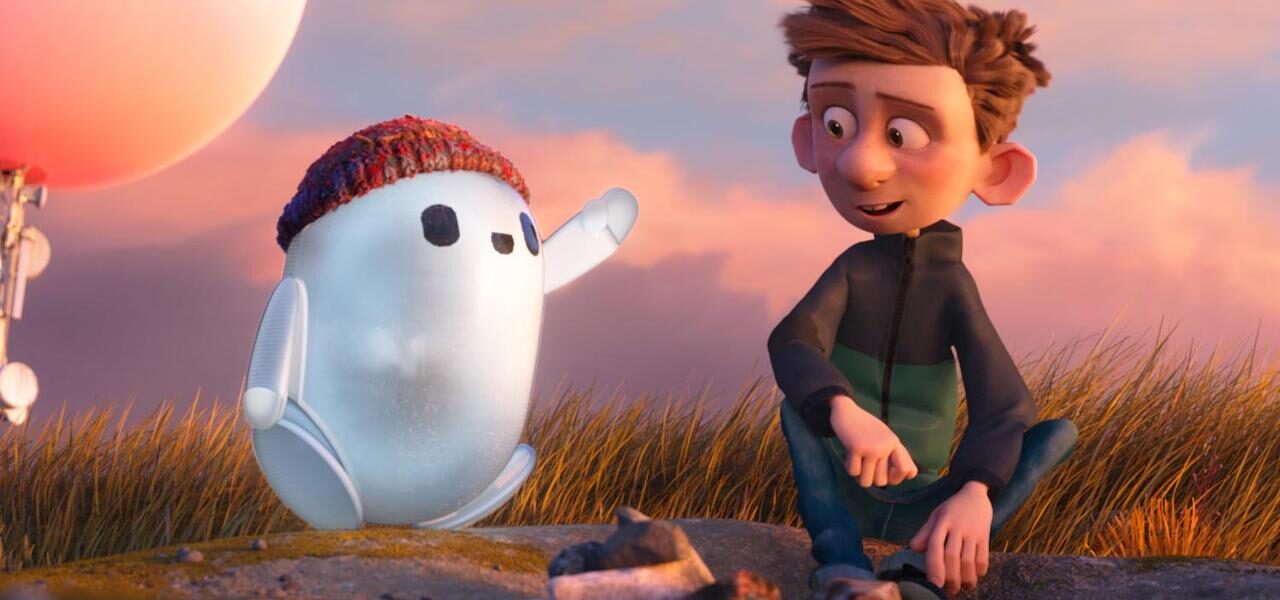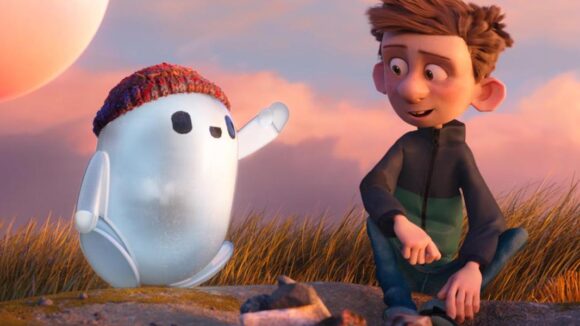

‘Ron’s Gone Wrong’ Reviews Roundup: Disney Sci-Fi Comedy Is Alright
Ron’s Gone Wrong has taken a roundabout path to the big screen. It is the maiden release from the U.K.’s Locksmith Animation, whose first two production partnerships with Hollywood studios collapsed. The film survived the turmoil and is being released today by Disney’s 20th Century Studios, following pandemic-related delays.
Things are now looking up: Ron’s Gone Wrong has opened to mostly warm reviews. The cg family comedy is set in a near-future world where children are accompanied by robotic buddies. Misfit Barney (Jack Dylan Grazer) is the last to get one of these B-bots, but his robot Ron (Zach Galifianakis) turns out to be defective. Confusion and chaos ensue.
The film is directed by Jean-Philippe Vine (story artist, Inside Out, The Good Dinosaur; director, Shaun the Sheep tv series) and Locksmith co-founder Sarah Smith, with Octavio E. Rodriguez (story artist, Coco, Incredibles 2, Star Wars: The Clone Wars) co-directing. The script is by Smith and Peter Baynham. Lara Breay and studio co-founder Julie Lockhart produce, and Smith, Baynham, and Elisabeth Murdoch executive-produce. The animation is by DNEG, with which Locksmith has a production partnership.
At the time of writing, Ron’s Gone Wrong holds an 80% Tomatometer score on Rotten Tomatoes. Here’s what the critics are saying:
Aparita Bhandari of The Globe and Mail finds the film both fun and timely:
The bond between Barney and Ron is clearly the reason this movie works. Galifianakis is delightfully deadpan and weird, natch. Grazer (whose seeming confidence was charming in Luca) plays Barney with a likeable vulnerability. Releasing at a time when we’re — yet again — questioning the tech world’s hold on our lives through algorithms and data-mining, Ron’s Gone Wrong is also relevant for the adults in charge of the various family devices.
Awarding the film three stars out of four, Pat Padua of The Washington Post notes his surprise at the film’s intense critique of tech:
It’s clear that this horrifying near-future is much like our present. Co-directors Sarah Smith, Jean-Philippe Vine, and Octavio E. Rodriguez, working from a script by Smith and Peter Baynham, pack a chilling dystopian punch, especially for a children’s movie. The co-creators of the B-bot look suspiciously like Mark Zuckerberg and Bill Gates, and the latter character admits outright that B-bots are tailor-made not just to make money, but to spy on their owners.
Angie Han agreed, in her review for The Hollywood Reporter, that the film’s satire resonates:
Ron’s Gone Wrong may just capture one of the most realistic sci-fi futures seen onscreen in recent memory, in that it barely feels like a sci-fi future at all … [W]hat the animated feature lacks in daring imagination, it makes up for with endearing good humor, thoughtful cultural critique, and one heck of a cute robot.
The Associated Press’s Mark Kennedy is less impressed, arguing that the film is both derivative and muddled in its message:
Ron’s Gone Wrong cynically skewers tech-makers but doesn’t adequately address the machines they make. It doesn’t even dissuade the idea that algorithm-based steel toys can indeed be our friends. It apes too many films already out there and even its theme song — “Sunshine” by Liam Payne — is a pale imitation of a Maroon 5 song. Ron’s Gone Wrong has indeed gone wrong.
Michael Ordoña is also unenthused in Los Angeles Times, finding problems in the central relationship:
But arguably the film’s greatest comic asset — Galifianakis — is squandered by a one-note delivery that’s level-less by design. Ron is equally happy to narrate good times and bad. The skilled Galifianakis does a good job of approximating a voice constructed by individually recorded words; perhaps too good a job. We lose the very specificity that the film purports to be about — the imperfections, the humanity that makes friends friends.

.png)